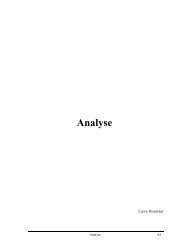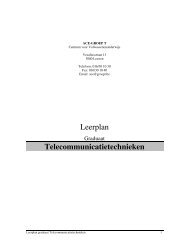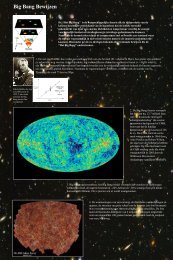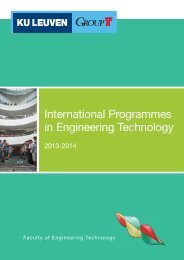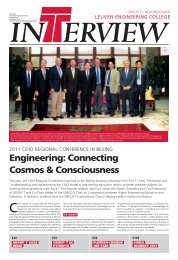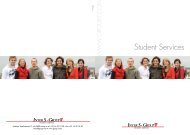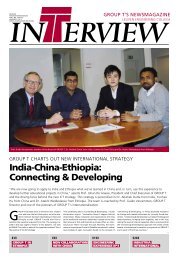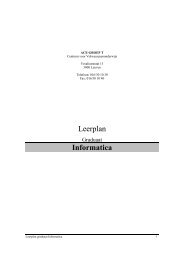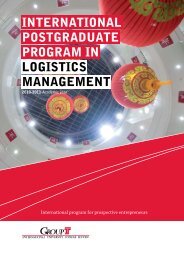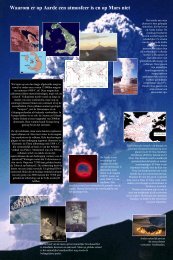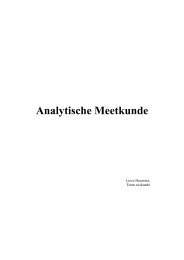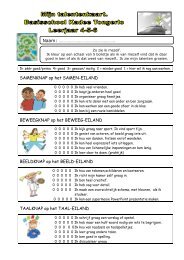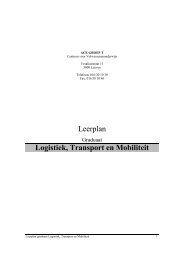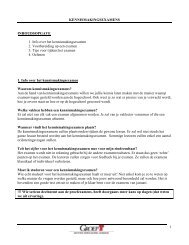teacher
teacher
teacher
You also want an ePaper? Increase the reach of your titles
YUMPU automatically turns print PDFs into web optimized ePapers that Google loves.
Celebrating the World Teacher’s s Day<br />
Groept T University<br />
Leuven, , Belgium, 3 October 2008<br />
Developing Teacher Professional<br />
Standards in Building Four Pillars<br />
of Learning for Quality Education<br />
Zhou Nanzhao<br />
East-China Normal University<br />
UNESCO Asia Pacific Network for International Education and Values Education
OUTLINE OF PRESENTATION<br />
I. INTRODUCTION<br />
II.<br />
CHANGING LARNING<br />
ENVIRONMENTS AFFECTING<br />
TEACHERS<br />
III.<br />
PILLARS OF LEARNING<br />
IV.<br />
TEACHER PROFESSIONAL<br />
STANDARDS FOR TEACHER<br />
QUALITY<br />
V. RECOMMENDATIONS FOR ACTON
I. INTRODUCTION<br />
‘Teachers are a key enabling factor in improving the<br />
quality of education’ (EFA GMR 2004). ‘The<br />
importance of the quality of teaching, and therefore<br />
of <strong>teacher</strong>s, cannot be over emphasized…. . Teachers<br />
are instrumental in in the development of attitudes to<br />
learning’ (Delors<br />
et al)<br />
Teacher education in crisis in large part of the world:<br />
human, finnancial and professional<br />
The best way to celebrate World Teachers’ Day: to<br />
turn policy rhetoric into actions, prgrammmes and<br />
investment for improved <strong>teacher</strong>s’ quality and socio-<br />
economic status: Message for the EFA High-Level<br />
Group Meeting, Oslo
II. CHANGING LEARNING<br />
Shift from f<br />
ENVIRONMENTS<br />
rom ‘schooling’ to life-long long learning:<br />
impossibility to teach everything supposed to be useful<br />
for the student’s s life<br />
Shift of emphasis from ‘teaching’ to ‘learning’:<br />
Teachers losing leading place and monopoly on<br />
information/knowledge <strong>teacher</strong> to develop competency<br />
for learner-centered education<br />
Shift of increasing policy attention to quality<br />
implying for upgraded <strong>teacher</strong> qualifications and<br />
more rigorous certification Changing
Multiplying functions of <strong>teacher</strong>s and wider range of skills<br />
and human qualities required of <strong>teacher</strong>s<br />
Change of focus from <strong>teacher</strong> training to <strong>teacher</strong><br />
professional learning<br />
Change of <strong>teacher</strong> development model changing from<br />
university-based training to school-based <strong>teacher</strong><br />
development and university-school school partnership<br />
The unfinished task of making teaching a profession:<br />
UNESCO-ILO Recommendation (1966): “Teaching should<br />
be regarded as a profession”.
the impending shortage of qualified <strong>teacher</strong>s (1.6<br />
million needed in Sub-Sahara Sahara Africa alone to<br />
achieve UPE by 2015)<br />
the lack of attraction of the teaching profession in<br />
recruiting motivated and qualified <strong>teacher</strong><br />
candidates and high turnover rate of in-service<br />
<strong>teacher</strong>s<br />
the irrelevant outdated curriculum of <strong>teacher</strong><br />
education<br />
the needed improvement of <strong>teacher</strong>’s s education<br />
attainment level and <strong>teacher</strong> professional<br />
competencies through professional development
Changing Learning Environments Affecting Teaching<br />
New Aims of Teaching<br />
From an instrumental view of education (training for skills as<br />
instrument for productivity) to an encompassing humanistic<br />
view of learning for the development of a ‘complete person’ in<br />
all the richness of the personality<br />
From developing part of intellectual faculty to fully tap the<br />
talents and potentials ‘hidden like buried treasure in every<br />
person’ (occupational skills becoming secondary and human<br />
qualities for inter-personal relationships becoming essential)<br />
Teaching for creativity and adaptability to change in an<br />
uncertain future<br />
Teaching for continued learning throughout life in a learning<br />
society<br />
Teaching for living together in peace and harmony (‘wa’) in an<br />
increasingly globalized world
New Content of Learning<br />
from <strong>teacher</strong>-centered to learner-centered curriculum<br />
from subject knowledge towards intellectual abilities<br />
from disciplinary-based curriculum to integrated, interdisciplinary<br />
teaching<br />
from supply-driven to demand-driven learning content<br />
from individual learning towards cooperative learning<br />
from reclassification/mastery of old knowledge to acquisition<br />
of instruments of knowing and understanding<br />
a new balance of scientific-technological and social-humanisticcultural<br />
content of education<br />
a new balance of general vs. vocational components of<br />
education and general vs. specialized training<br />
a new balance of knowledge and skills/competencies and<br />
values/attitudes
New Process of Learning<br />
• from linear model of education to cyclical paradigm of<br />
study-work alternation and lifelong pursuit of learning<br />
• from<br />
‘one-stop’ knowledge/degree acquisition at<br />
schools/universities to more diversified gateways to<br />
learning opportunities in ‘mega-malls malls of information<br />
and short-term term in-service training<br />
• from rote learning, ‘classroom discipline' and man-<br />
machine interaction to more <strong>teacher</strong>-pupil, pupil-pupil<br />
interaction/dialogue and collaborative team learning.
New Types of Learners<br />
new learners in ‘generation gaps’, with different values,<br />
‘languages’, and ‘pop-cultures’, and in different ways of thinking,<br />
reacting, responding and getting motivated<br />
new generation of learners ‘growing digital on the net’, with skills<br />
and competencies oftentimes better than their <strong>teacher</strong>s in using ICT as<br />
powerful learning tools<br />
new generation of learners of more diverse backgrounds and<br />
‘cultural identities’ (age, ethnicity, linguistic, economic, religions,<br />
working experience, etc.)<br />
new learners with new traits of independence, creativity, openmindedness,<br />
and enterprising minds
New Spaces/Dimensions of Learning<br />
horizontally: from schools to work-places,<br />
communities, mass media, and other social learning<br />
environment<br />
longitudinally: from early childhood through<br />
adulthood to post-retirement years (lifelong)<br />
vertically: from real to digital and virtual<br />
learning environments
Changing Teacher Roles Demanding New Standards<br />
<br />
<br />
<br />
<br />
<br />
<br />
<br />
<br />
the sole source of<br />
information<br />
an authority of knowledge<br />
a transmitter of factual<br />
knowledge<br />
a craftsman in lecturing/a<br />
‘chalk-talk’ instructor<br />
teaching as an occupation<br />
a solitary worker/a ‘soloist’<br />
in teaching<br />
an ever ‘<strong>teacher</strong>’<br />
a receptive/conservative<br />
force of inertia resistant to<br />
change<br />
one of multiple sources of<br />
information<br />
a friend and a guide in<br />
exploring the unknown; A co-<br />
learner<br />
a facilitator of knowledge,<br />
skills and moral values<br />
an artist and scientist in<br />
teaching/a specialist of<br />
teaching with technologies<br />
teaching as a profession<br />
a team member/<br />
‘accompanist- and<br />
communicator<br />
a life-long long learner; A<br />
facilitator of learning<br />
An active agent of change
III. THE PILLARS OF LEARING<br />
“If it is to succeed in its tasks, education must be<br />
organized around four fundamental types of<br />
learning which, throughout a person’s s life, will<br />
in a way be the pillars of knowledge …..<br />
these four paths of knowledge all form a whole,<br />
because there are many points of contact,<br />
intersection and exchange among them”.<br />
-- from Delors et al, Learning: The<br />
Treasure Within, , UNESCO Publishing, 1996
Learning To Know<br />
to master instruments of knowing<br />
to learn to learn and to discover<br />
to develop faculty of memory, imagination, reasoning, and<br />
problem-solving<br />
to understand about his/her environment<br />
to think in a coherent and critical way<br />
to communicate with others<br />
to acquire a knowledge of the scientific method and<br />
instruments<br />
to develop a scientific spirit and an inquiring mind<br />
to acquire independence of judgement
Learning To Do<br />
To apply in practice what has been learned<br />
To develop vocational/occupational and technical skills<br />
To develop social skills in building meaningful inter-<br />
personal relations<br />
To transform knowledge into innovations and job-creation<br />
To develop competence, a mix of higher skills, of social<br />
behaviour, of an aptitude for team work, and<br />
initiative/readiness to take risks<br />
To develop personal commitment to work<br />
To enhance ability to communicate, to work with others<br />
To o manage and resolve conflicts
Learning To Be<br />
cultivating qualities of imagination and<br />
creativity,<br />
developing diversified talents and dimensions<br />
of personalities – aesthetic, artistic, literary,<br />
sporting, scientific, cultural and social<br />
developing critical thinking and exercising<br />
independent judgment<br />
developing personal commitment and<br />
responsibility for public good<br />
tapping fully the talents hidden in each<br />
individual
Learning To Live Together<br />
To discover others<br />
To appreciate the diversity of the human race<br />
To know oneself<br />
To be receptive to others and to encounter others<br />
through dialogue and debate<br />
To care and share<br />
To work toward common objectives in cooperative<br />
undertakings<br />
To manage and resolve conflicts in peaceful ways
The Use of the Four Pillars of Learniing in Curriculum Change (Mongolia)<br />
Content domain<br />
Technology<br />
Social science<br />
Natural science<br />
Mathematics<br />
Humanistic science<br />
Competence<br />
To know<br />
To be<br />
To do<br />
To live socially together
III. TEACHER STANDARDS NEEDED<br />
What Are Standards<br />
Standards make judgment about the ‘desirable<br />
level of performance’<br />
Standards clarify what <strong>teacher</strong>s should know<br />
and be able to do in the light of research and<br />
best practice<br />
Standards clarify what <strong>teacher</strong>s to get better at<br />
over the longer term<br />
Standards describe trajectories for professional<br />
development
Standards are centered on core propositions that<br />
broadly reflect a rich and complex knowledge<br />
base<br />
Standards are statements about what are valued-<br />
statements of principle<br />
Standards provide adequate guidance for making<br />
judgments of the degree of <strong>teacher</strong>s’ experience<br />
and the desirable level of performance in<br />
teaching
Why Standards Are Important<br />
As the ‘core business’ for the profession and its<br />
members<br />
As foundation to reshape initial training<br />
curriculum around for entry into the teaching<br />
As criteria for assessment of <strong>teacher</strong><br />
competencies<br />
As tools for professional learning and growth<br />
on a continuum<br />
As instrument to generate improvements in the<br />
quality of learning-teaching process
Two different set of purposes:<br />
• Standards for a<br />
Standards for accreditation,<br />
registration, advanced<br />
certification and promotion; or<br />
• Standards for a continuum of<br />
<strong>teacher</strong> professional learning
What Types of Standards<br />
Beginning vs Advanced standards<br />
(focusing on high-order competencies<br />
demonstrated by more accomplished <strong>teacher</strong>s)<br />
Generic vs Subject-specific standards<br />
(applying to professional knowledge, skills and<br />
values for teaching an individual subject)
How Standards Could Be Structured<br />
What is expected of <strong>teacher</strong>s? (requirement);<br />
What evidence would a <strong>teacher</strong> have to<br />
demonstrate to indicate that this was present?<br />
(performance indicator);<br />
How well did the <strong>teacher</strong> demonstrate<br />
this? (quality criterion);<br />
How do the quality criteria different<br />
between <strong>teacher</strong>s?
Diagram: Performance-based teaching standards: main components<br />
Core professional principles/values guiding educational vision<br />
Content standards<br />
What is good teaching?<br />
What should <strong>teacher</strong>s<br />
know and be able to do?<br />
Defining the domain of<br />
good teaching.<br />
What is the scope of<br />
<strong>teacher</strong>s’ work?<br />
What are we going to<br />
measure?<br />
Evidential standards<br />
What evidence will we<br />
gather?<br />
What rules will we use to<br />
gather evidence of<br />
practices?<br />
Capturing good teaching.<br />
What tasks should<br />
<strong>teacher</strong>s be expected to<br />
perform?<br />
How are we going to<br />
measure it?<br />
Performance standards<br />
How will we judge<br />
performance?<br />
What level of<br />
performance meets the<br />
purpose?<br />
How good is good<br />
enough?<br />
Where do we get the<br />
standards?<br />
How will we<br />
discriminate between good<br />
and poor?<br />
How are we going to<br />
score it?<br />
[Source: ACER, Policy Briefs, Issue 1, May 2002]
What Teachers Should Learn To Know:<br />
Professional Knowledge-Base<br />
General pedagogical knowledge<br />
Subject matter knowledge<br />
Pedagogical content-knowledge<br />
Knowledge of student context and the interest<br />
Clinical training<br />
External evaluation of learning<br />
Knowledge strategies, techniques and tool to create and<br />
sustain a learning environment<br />
Knowledge and attitude supporting political and social<br />
justice<br />
Knowledge on how to implement technology in<br />
curriculum
the content they teach;<br />
how students learn that content<br />
how to represent and convey that content in<br />
meaningful ways;<br />
how well their students are doing in<br />
relation to how well they should be doing
What Teachers Should Learn To Do:<br />
Professional Skills<br />
Skills in planning lessons in light of learning goals<br />
Skills in class management<br />
Skills in involving learners in interaction<br />
Skills in seek feedback and improve teaching<br />
Skills in evaluating, monitoring and assessment<br />
Skills in enable pupils to learn to learn, with acquisition<br />
of learning tools and learning content<br />
Skills in organizing learning experiences in<br />
socialization of the pupils<br />
Skills in reflection on practices<br />
Skills in work with peers, parents and local community
What Teachers Should Learn To Be:<br />
Professional Ethical/Moral Values<br />
Commitment and dedication to learners<br />
and their learning: teaching as a public<br />
good<br />
Respect the rights of the child to<br />
education: equal access, equal treatment<br />
Love and care of the children<br />
<br />
Reflect on and improve one’s s own<br />
practices<br />
Learning to learn throughout life and<br />
making teaching a learning profession
What Teachers Should Learn To Live Together:<br />
Professional Attributes<br />
Breaking isolation from each other for peer<br />
learning<br />
Communicating and working with students as<br />
coaches of learning and co-learners<br />
Making the site of teaching the place for<br />
professional learning<br />
Transforming the culture of school as a learning<br />
community<br />
Working with the parents and local community<br />
Acting as agents of educational and social changes<br />
and as community members
V. RECOMMENDATIONS FOR ACTION<br />
• Developing broadened visions of teaching<br />
and <strong>teacher</strong> education in view of the changed<br />
learning environments<br />
• Joint studies and development of ‘a a global<br />
framework of <strong>teacher</strong> standards’ adaptable to<br />
country/locally-specific contexts, and their<br />
implementation in <strong>teacher</strong> certification and<br />
professional learning [e.g. the World Bank-<br />
China Ministry Study Project on ‘Teacher<br />
Education Quality Standards’]
Joint modules development on the four pillars<br />
of learning, based on UNESCO-APNIEVE<br />
Teachers Sourcebooks and Leuven Education<br />
College’s s Postgraduate International Educating<br />
Class (PIEC) initiative<br />
Participation in China-Africa <strong>teacher</strong> training<br />
programme supported by a Chinese donation:<br />
<strong>teacher</strong> education policy studies; math-science<br />
teaching standards development; use of<br />
distance/ICT <strong>teacher</strong> education; scholarships, etc.
Teacher professional development in the four<br />
pillars of learning, in partnership with UNESCO-<br />
ASPnet and APNIEVE<br />
Utilizing the International Education and<br />
Resource Network (iEARN(<br />
iEARN),<br />
non-profit org<br />
made of 22,000 schools in over 115 countries for<br />
online professional development and 1,000,000<br />
students daily engaged in collaborative project<br />
work
To update UNESCO-ILO Recommendations<br />
Concerning the Status of Teachers: : a possible<br />
international document binding national governments for<br />
increased investment in <strong>teacher</strong>s<br />
The need to revitalize UNESCO-ILO EFA Flagship<br />
programme on “Teachers and Quality of Education<br />
for All”, rallying support from member states and the<br />
international community<br />
An enhanced institutionalized Groept T presence in<br />
China/Asia for greater impacts of ‘Educating,<br />
Enterprising and Engineering’ in international education<br />
in general, and in <strong>teacher</strong> education in particular, in the<br />
better interest of learners in the knowledge economies of<br />
the 21 st century
http://www.icte.ecnu.edu.cn<br />
NZHOU@ADMIN.ECNU.EDU.CN<br />
ZHOUNZ@HOTMAIL.COM



